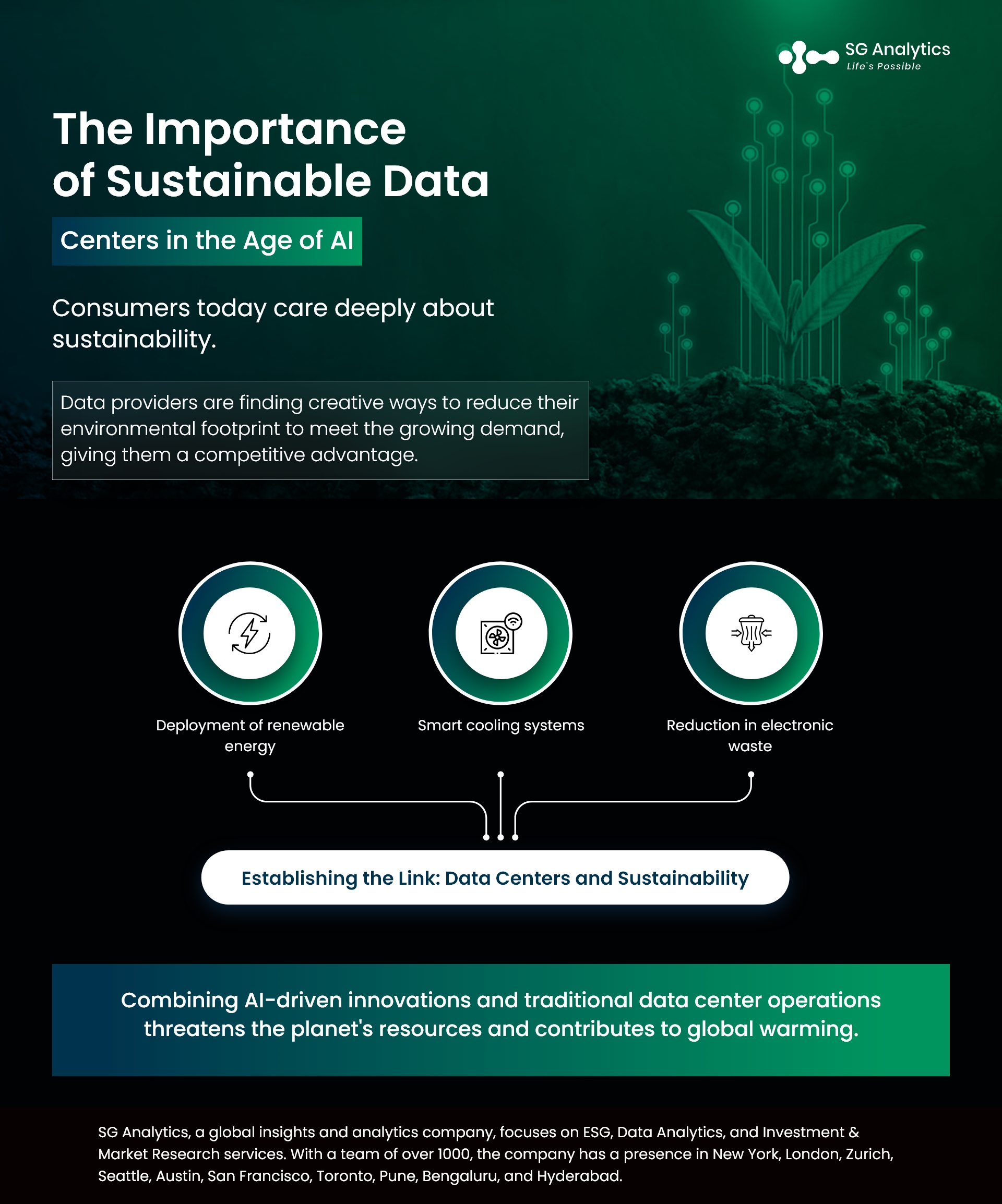Every day, technology attracts an increasing number of people to different digital platforms. The introduction of AI has also increased the speed at which people connect to the internet.
Consumers today care deeply about sustainability. Worldwide, two-thirds of consumers are concerned with the issue. Increasingly, consumers are holding businesses and investors accountable for their environmental stewardship or lack thereof. At the same time, there are exciting opportunities for organizations to innovate as industries seek more sustainable paths.
To meet the growing demand from AI companies, sustainable data providers are finding creative ways to reduce their environmental footprint, giving them a competitive advantage. Besides saving money, it also helps attract customers and investors with the same green goals.
However, data centers are known to consume a lot of resources. This technological breakthrough will help reduce their power consumption, having a multiplier effect.
Read more: Exploring ESG Investment Options: Ways Your Business Portfolio Can Save the Planet
Data center companies that have made sustainability a core part of their identity is rooting their sustainability efforts to do the right thing for their employees, customers, communities, and shareholders.
Ultimately, keeping sustainability at the front and center is a win-win — for data center providers, the businesses they serve, and the environment.
Establishing the Link: Data Centers and Sustainability
We, as humans, have paid the price for technological advancements in the environment. To witness the development of eco-friendly AI technology, there is a growing need to combine sustainability and technology.
The concept of sustainable data centers is being implemented widely. However, there is still room for large-scale shifts from traditional data centers to sustainable ones.
With the concept of eco-friendly and sustainable data centers taking center stage, organizations across the globe are integrating sustainable measures. Today, data centers globally account for approximately 1.5% of global electricity consumption. Most of the electricity produced is from the burning of fossil fuels, adding to global warming. This implies that power-hungry data centers are contributing to global warming.

Read more: A Simple Guide on How to Avoid Greenwashing Traps
It is quite clear that the planet is in dire need of sustainable data centers. But what makes a data center building sustainable and eco-friendly?
Let's explore and understand the elements of a sustainable data center:
-
Deployment of renewable energy
Renewable energy is the perfect choice to save the Earth's natural resources. A sustainable data center uses renewable energy instead of fossil fuels. This deployment of solar and wind energy will help transform traditional data centers into sustainable ones.
-
Smart cooling systems
The temperature control inside a data center is of supreme importance. From storage to transmission, everything depends on the cooling system. The significance of cooling systems is leading to a staggering increase in water consumption. However, with the introduction of AI, there is a growing need for bigger data centers and storage of large-scale data for training purposes. This vicious cycle of overusing natural resources can only be broken by the implementation of smart cooling systems. A sustainable data center can limit water consumption with the right decision-making.
-
Reduction in electronic waste
E-waste is a major factor in increasing toxicity in landfills. Data center equipment contributes to e-waste. Regular maintenance of the equipment can effectively increase the lifespan, thus reducing the need for new equipment and leading to a healthier planet.
Read more: 2024 Outlook: How to Spot Greenwashing?

Benefits of Data Center Sustainability in this AI Age
The data center industry is no newcomer to sustainability.
For data center providers that deliver the digital backbone for AI and the rest of today’s economy, it is an exciting time. Today, AI chips come with a big environmental price tag due to the prodigious appetite for power and water. As a result, AI is pushing sustainability concerns to the back burner. For industries, operating sustainably is more important than ever and is set to become increasingly urgent in the years ahead.
Next to operations, lower-carbon construction is where the industry is making the biggest gains. In addition to using locally sourced and recycled materials, business providers are also prefabricating components to reduce indirect carbon emissions.
Datacenter providers that can manage to strike the right balance between business growth and sustainable innovation will be rewarded by their customers, investors, and the public. However, across industries, organizations should be aware of the environmental costs of meeting the unprecedented demand. That’s why companies are focusing on sustainability.
Eco-friendly and sustainable data centers present numerous benefits. Let's explore the most important ones the world might need to maintain ecological balance and business.
- Cost Reduction: Data centers rely on renewable energy, which is naturally available and inexpensive. With efficient cooling systems and better equipment utilization, the cost of operation comes down massively.
- Environmental Impact: Implementing sustainable processes leads to lower energy consumption, enabling data centers to reduce their carbon footprint. The negative environmental impact can be minimized as sustainable data centers deploy energy-efficient infrastructures and smart e-waste strategies.
- Improved Reputation: Eco-friendly technologies have high credibility. Data center sustainability initiatives strongly commit to developing human and planet-friendly technology.
- Regulatory Compliance: While data centers are still heavily using power and water, the upcoming future isn't that bright. The tightening noose around regulatory compliance indicates that the server house needs to be more sustainable. With an already eco-friendly data center, businesses can adhere to these strict regulatory compliances, further avoiding any legal issues in the future.
Read more: Investing in the Green Revolution: A Comprehensive Guide to Sustainable Development

Final Thoughts
With technological advancement and its impact on the environment, there is a growing need for smart technology. Combining AI-driven innovations and traditional data center operations threatens the planet's resources and contributes to global warming.
However, adopting sustainable practices is set to present a bright solution to overcome such challenges. By transforming traditional data centers into sustainable ones, businesses can avoid overconsumption of water and power, leading to better cost-effectiveness and perpetual business insights.
A leader in ESG Services, SG Analytics offers bespoke sustainability consulting services and research support for informed decision-making. Contact us today if you are searching for an efficient ESG (Environmental, Social, and Governance) integration and management solution provider to boost your sustainable performance.
About SG Analytics
SG Analytics (SGA) is an industry-leading global data solutions firm providing data-centric research and contextual analytics services to its clients, including Fortune 500 companies, across BFSI, Technology, Media & Entertainment, and Healthcare sectors. Established in 2007, SG Analytics is a Great Place to Work® (GPTW) certified company with a team of over 1200 employees and a presence across the U.S.A., the UK, Switzerland, Poland, and India.
Apart from being recognized by reputed firms such as Gartner, Everest Group, and ISG, SGA has been featured in the elite Deloitte Technology Fast 50 India 2023 and APAC 2024 High Growth Companies by the Financial Times & Statist









